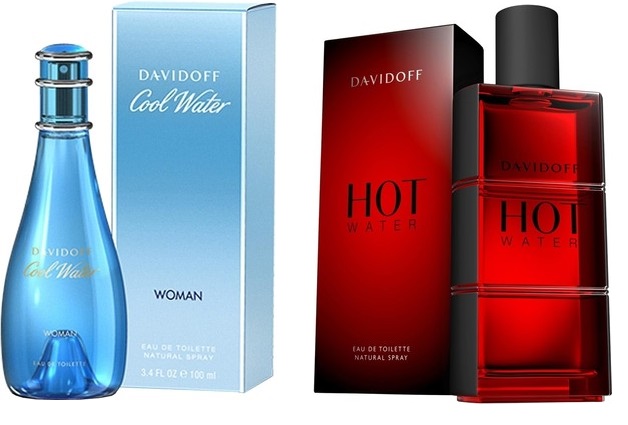This article has been written by Krati Agarwal, pursuing the Diploma in Intellectual Property, Media and Entertainment Laws from LawSikho.
Table of Contents
Introduction
We have had numerous judgments from around the world highlighting the fact that an e-commerce platform isn’t liable for a trademark infringement because of its Safe Harbor Protection. However, times are changing and the role of e-commerce platforms has undergone a significant change. E-commerce platforms are moving away from their role as an intermediary and are stepping into the shoes of active engagers in the market. In such a scenario, they can be held liable for a trademark infringement on their platforms. Although the e-commerce platforms have transitioned into the new role smoothly, the legal concepts around it haven’t changed and we are yet to see an interesting case that captures the new position.
The present case relates to the liability of a company (Amazon) over providing storage facility to III party, which infringes the trademark (Davidoff) of another company (Coty). The Court of Justice of the European Union (“CJEU”) in this case reiterated the settled position of law in this respect that a company is not liable if it is not pursuing the aim of offering the goods for sale itself and is merely storing them. Hence, Amazon was not held liable for infringement of the trademark of Coty on these footings. However, it is important to analyze the role of Amazon while storing the goods for the III party vis-à-vis trademark infringement. This article will analyze the position of trademark infringement law concerning online market-places in Europe, highlight the missed opportunity by the CJEU to settle the new position of law for changing roles of e-commerce platforms, and compare the position of the same from India.
Background of the case
Coty Germany GmbH is the owner of a registered Trademark “Davidoff ”. They noticed that an unauthorized person was selling their “Davidoff Hot Water” perfume over Amazon. They sent a legal notice to the seller to stop infringing their trademark. Later they asked Amazon to return all the goods bearing the “Davidoff” trademark. Amazon refused this request citing that not all goods belonged to City and some of the goods were stored on behalf of another person. They filed a suit in German Courts for infringement of their trademark against Amazon, over Amazon’s “Fulfillment by Amazon” service. Under this service, Amazon took the responsibility of storing and shipping the goods to delivery companies for the III party sellers.
Issues
The issue here before CJEU was whether Amazon has violated the trademark of Coty. The German Court formulated the following question to refer the case to CJEU. “Does a person who stores infringing goods for a third party, without having knowledge of the infringing nature of said goods, stock these goods for the purpose of offering them or putting them on the market, when only the third party has the intention to offer the goods or to put them on the market?”
Law in question
Article 9(2)(b) of the Community Trademark Regulation and Article 9(3)(b) of the European Union Trademark Regulation operate in the present case. Both the laws state the right of the Trademark owners to prevent any person from “offering (infringing) goods, putting them on the market, or stocking them for those purposes under the (infringing) sign”.
Analysis
It was argued by Amazon that since they didn’t know what goods are being stored while providing the service, they shall not be held liable. The German Courts ruled in the favor of Amazon. They opined that Amazon had no knowledge about the infringement and it was merely storing goods on behalf of the III parties. However, they referred the case to the CJEU for guidance.
CJEU agreed with the Federal Court of Germany and ruled in favor of Amazon. It said that to constitute an infringement, there should be a “use” of that trademark. What constitutes “use” has not been defined in legislation and the Court referred to its general usage. It opined that in general usage for a trademark, “use” includes active behavior on the part of a person who also has direct or indirect control over it and said that Article 9(3) listed down examples of “use”, which includes offering the goods, putting them on market or stocking them for these purposes.
It also clarified the meaning of the term, “use in the course of trade”, as being actively involved in the use of the mark and also pursuing the aim of offering the goods or putting them in the marketplace.
As per the Court, Amazon in this case was not involved in offering the goods or putting them in the market or stocking them for sale on its own. It was merely doing it on behalf of a III party, which had actual control over its usage. To make Amazon liable for Trademark infringement, Amazon should be an active player in trademark usage/infringement and should itself sell or offer to sell. In coming to this conclusion, CJEU relied on its previous judgment of Google and Google France v. Louis Vuitton and L’Oreal v. eBay.
In the former case, the Court held that service providers in information society like the Search engine Google do not infringe the trademark of a company merely because they store a keyword (which forms a part of the trademark) to display advertisements based on that word. This is because the storage here is not falling within the meaning of Article 9(3) of the European Union Trademark Regulation. Similarly, in the latter case, eBay was not held liable because it lacked knowledge about trademark infringement by the sellers selling on its platform.
Rights of trademark owners against an economic operator
The trademark owners have a right to seek an injunction against the use of their trademark by any economic operator. It was held by CJEU in the case of Tony Hilfiger v Delta, that a trademark owner can seek an injunction against a marketplace operator, either operating online or offline if it has violated its trademark. This judgment was in consonance with Article 11 of IP Enforcement Directives, which reads that upon a judicial finding of infringement of trademark, the court can issue an injunction against the infringer. Hence, Coty would have been able to ask for an injunction against Amazon if the Court would have found Amazon liable for the trademark infringement.
Missed opportunity by the court
One of the important questions asked by Coty during the proceedings was what will be the liability of marketplace sellers whose role is not limited to merely stocking the goods for III party sellers. As per City, the role of Amazon here was not limited to just stocking goods for the III parties as they were actively facilitating the delivery of goods. They asked whether the E-commerce directive or IP Enforcement Directive will be applicable in such a scenario. This argument was not considered by the Court because the German Federal Court did not ask this in its reference. The Court chose to remain silent in a very important aspect and hence missed the opportunity to settle the question which has to be answered in near future. With the development of E-Commerce services and the increasing role of their operators, the intermediary role of E-Commerce operators is diminishing as they are active in the market, regularly interacting with the consumers. The “Fulfilment by Amazon ” service if looked at objectively is not within the scope of an intermediary. It is crossing the line and Amazon can be said to have a role in sales. This new role can come under the “use” of the trademark and even E-commerce operators can be made liable.
Intermediary liability for trademark infringement in India
An intermediary in India is protected under Section 79 of the Information Technology Act, 2000 from any liability provided it can establish that it didn’t have any knowledge of the infringement. (Safe Harbor Protection) It also has to ensure proper due diligence & government guidelines are followed. A case of similar facts which arose in India was Christian Louboutin v. Nakul Bajaj. Even though the intermediary was not held liable, it is important to have a look at how Delhi High Court analyzed the situation.
The Court listed down 21 activities that could determine whether an e-commerce platform falls under an intermediary or not, ranging from ‘giving discounts to customers’, ’employing delivery personnel’, ‘using trademarks as meta-tags, or ‘deep-linking. The Court opined that when the e-commerce platform’s business includes a ‘large number’ of the factors as listed by it, it crosses the line from an ‘intermediary’ to become an ‘active participant’. It stated that if the active participant uses the mark (depending on how the mark is used, especially concerning 21 activities listed), it can be said to infringe the trademark of the company. The illustration given by the Court is interesting, it reads, “any online marketplace or e-commerce website, which allows storing of counterfeit goods, would be falsifying the mark. Any service provider, who uses the mark in an invoice thereby giving the impression that the counterfeit product is genuine, is also falsifying the mark. Displaying advertisements of the mark on the website to promote counterfeit products would constitute falsification. Enclosing a counterfeit product with its own packaging and selling the same or offering for sale would also amount to falsification. All these acts would aid the infringement or falsification and would therefore bring the e-commerce platform or online marketplace outside the exemption provided under Section 79 of the IT Act”
The court also came up with a ‘notice and notice’ approach wherein an e-commerce platform upon receiving a notice from the seller about trademark infringement has to take steps and send a notice to the alleged offender to rectify it. This forms the part of due diligence an intermediary has to follow. Hence, in India, an e-commerce platform can not be given safe harbor protection if it is providing an active delivery service.
Conclusion
The decision of CJEU is based on the settled principles of law that a company will not be liable if it is not in itself involved in selling the goods. However, as noted above this case would have been an opportunity for CJEU to settle the law in cases of active participants in the online market space. If a similar situation arose in India, there are chances that e-commerce platforms be made liable for their active role which goes far beyond the role of intermediary. They would also be subject to the ‘notice and notice’ approach as devised by the Court to make sure they took steps to prevent the infringement of intellectual property. Now, a case will be awaited in European Union with infringement of intellectual property by an e-commerce platform to see how the European Courts analyze their role and liability.
References
- https://spicyip.com/2018/11/delhi-high-court-examines-intermediary-liability-for-trademark-infringement-part-ii.html.
- https://www.mondaq.com/india/trademark/805806/christian-louboutin-sas-vs-nakul-bajaj-and-ors.
- https://www.cms-lawnow.com/ealerts/2020/04/coty-v-amazon-cjeu-confirms-amazon-is-not-liable-for-trade-mark-infringement.
- https://www.lexology.com/library/detail.aspx?g=dca362ff-628b-4da0-9753-888ef440a1bf.
- https://www.twobirds.com/en/news/articles/2012/keywords-sponsored-links-spain.
Students of Lawsikho courses regularly produce writing assignments and work on practical exercises as a part of their coursework and develop themselves in real-life practical skills.
LawSikho has created a telegram group for exchanging legal knowledge, referrals, and various opportunities. You can click on this link and join:
 Serato DJ Crack 2025Serato DJ PRO Crack
Serato DJ Crack 2025Serato DJ PRO Crack









 Allow notifications
Allow notifications


